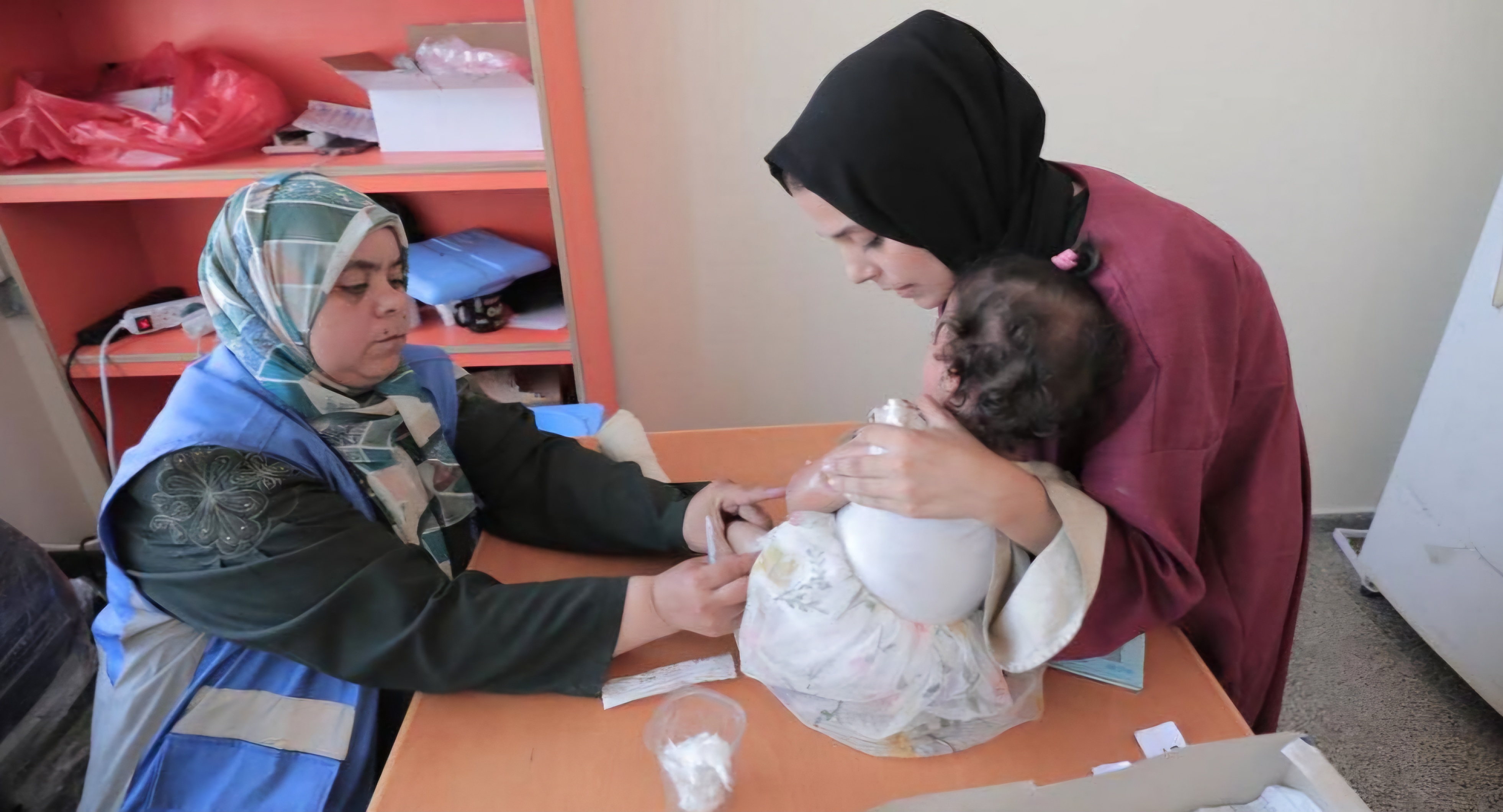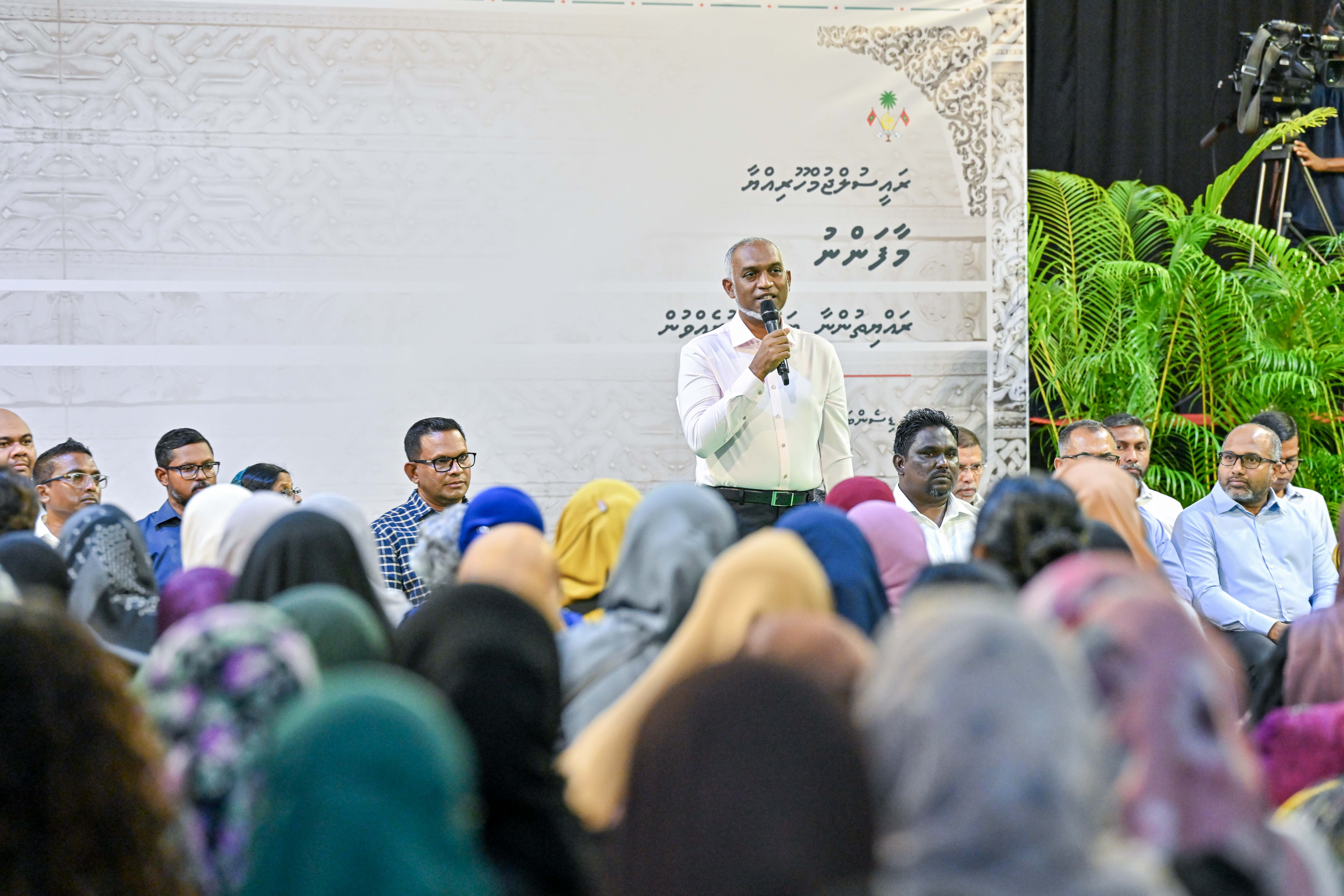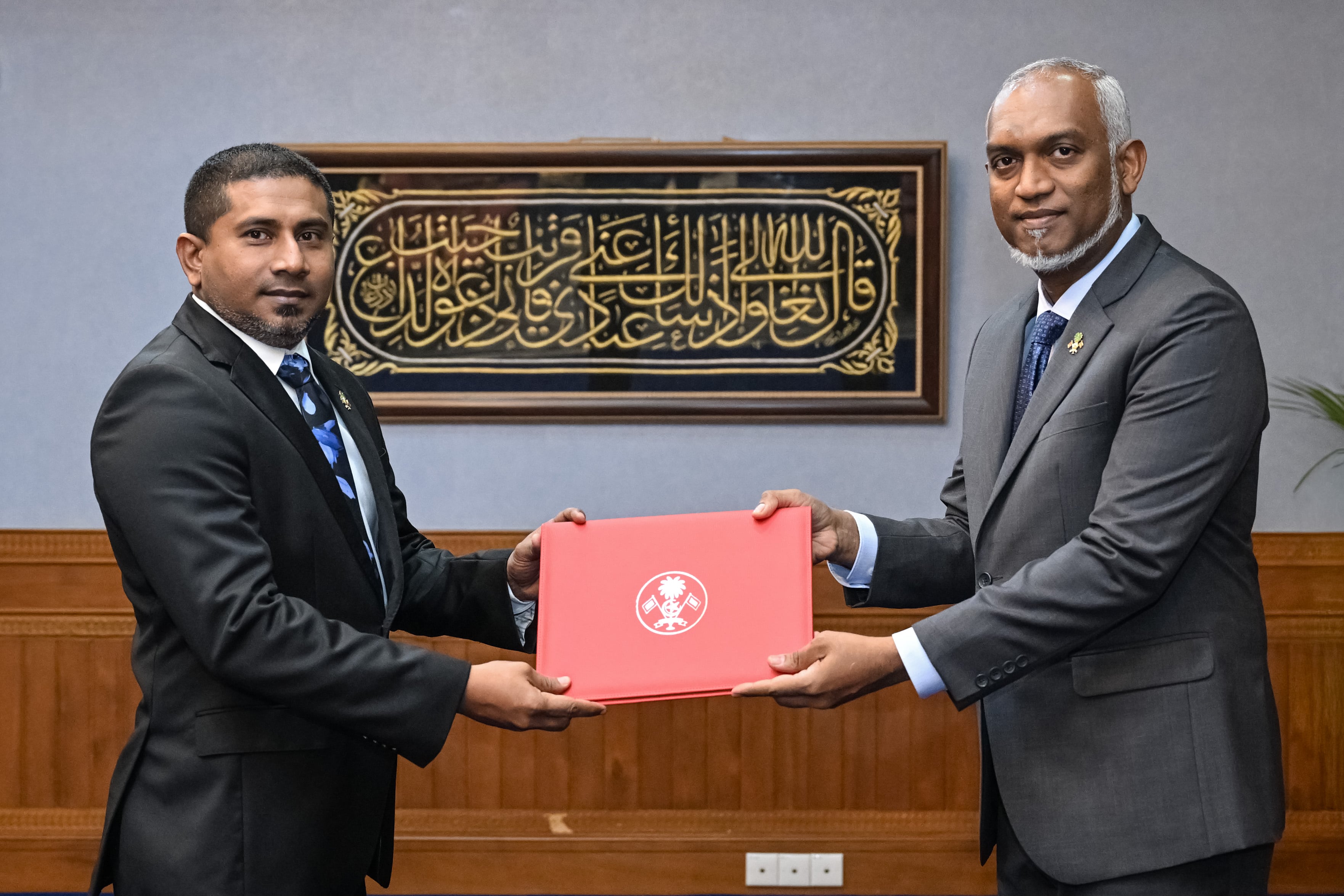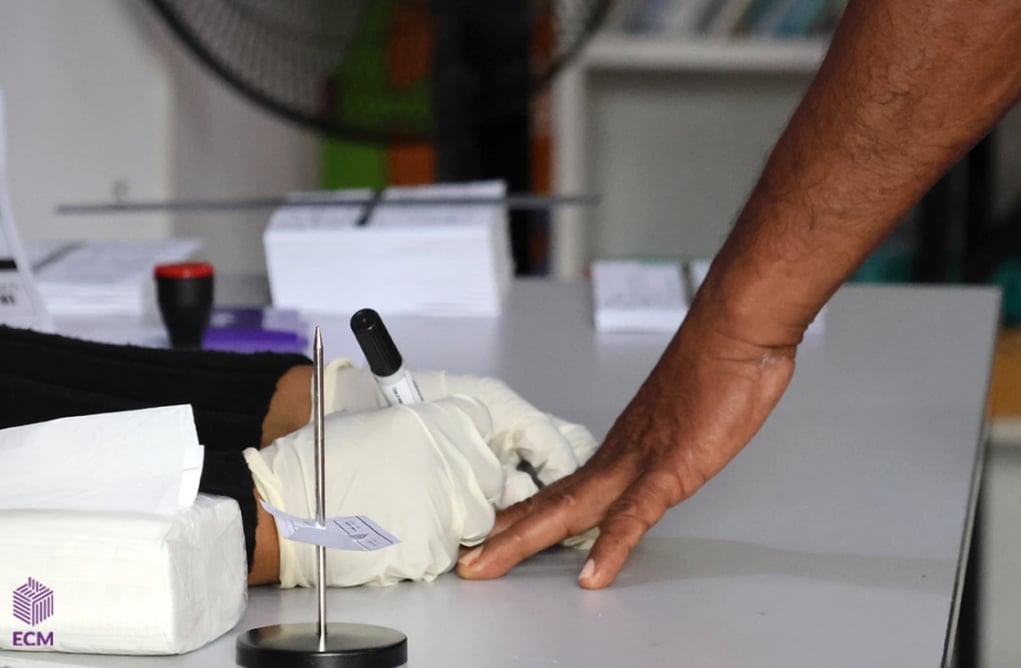The Gaza Strip is facing a severe public health crisis with its first polio case in 25 years, revealing the deepening challenges of conducting a mass vaccination campaign in the war-torn region.
On Thursday, the Palestinian Health Ministry confirmed that a 10-month-old infant from central Gaza tested positive for polio. This marks a troubling resurgence, as the last recorded case of polio in Gaza was over two decades ago. Recent tests also detected the type 2 poliovirus in Gaza's wastewater in June, highlighting the critical need for a comprehensive vaccination effort.
The vaccination campaign, slated to begin on August 31, aims to reach 640,000 children across Gaza. However, the campaign faces significant hurdles due to ongoing Israeli airstrikes, which have intensified over the past 10 months as part of the conflict with Hamas. Additionally, severe restrictions on aid and the extreme summer temperatures further complicate the distribution of vaccines.
International agencies, including the United Nations, WHO, and UNICEF, have mobilized to support the campaign. The WHO will oversee the effort, with 2,700 health workers organized into 708 teams. UNICEF is responsible for maintaining the cold chain necessary to preserve vaccine efficacy. Essential equipment, including refrigeration units, arrived at Israel’s main international airport on Wednesday.
Juliette Touma, spokesperson for the UN Relief and Works Agency (UNRWA), emphasized the difficulties of executing such a large-scale vaccination initiative amid ongoing airstrikes: “It’s extremely difficult to undertake a vaccination campaign of this scale and volume under a sky full of airstrikes.”
The global community is closely watching the situation, with hopes that the coordinated vaccination effort will mitigate the spread of polio and protect Gaza’s vulnerable children despite the severe operational challenges.
On Thursday, the Palestinian Health Ministry confirmed that a 10-month-old infant from central Gaza tested positive for polio. This marks a troubling resurgence, as the last recorded case of polio in Gaza was over two decades ago. Recent tests also detected the type 2 poliovirus in Gaza's wastewater in June, highlighting the critical need for a comprehensive vaccination effort.
The vaccination campaign, slated to begin on August 31, aims to reach 640,000 children across Gaza. However, the campaign faces significant hurdles due to ongoing Israeli airstrikes, which have intensified over the past 10 months as part of the conflict with Hamas. Additionally, severe restrictions on aid and the extreme summer temperatures further complicate the distribution of vaccines.
International agencies, including the United Nations, WHO, and UNICEF, have mobilized to support the campaign. The WHO will oversee the effort, with 2,700 health workers organized into 708 teams. UNICEF is responsible for maintaining the cold chain necessary to preserve vaccine efficacy. Essential equipment, including refrigeration units, arrived at Israel’s main international airport on Wednesday.
Juliette Touma, spokesperson for the UN Relief and Works Agency (UNRWA), emphasized the difficulties of executing such a large-scale vaccination initiative amid ongoing airstrikes: “It’s extremely difficult to undertake a vaccination campaign of this scale and volume under a sky full of airstrikes.”
The global community is closely watching the situation, with hopes that the coordinated vaccination effort will mitigate the spread of polio and protect Gaza’s vulnerable children despite the severe operational challenges.


















